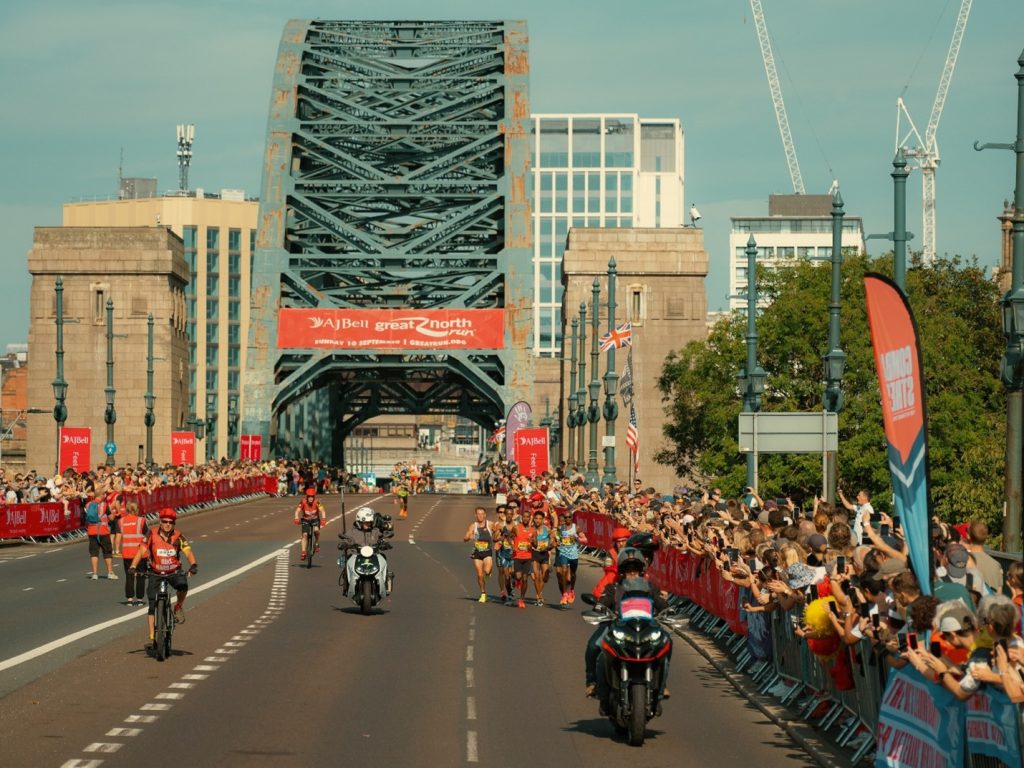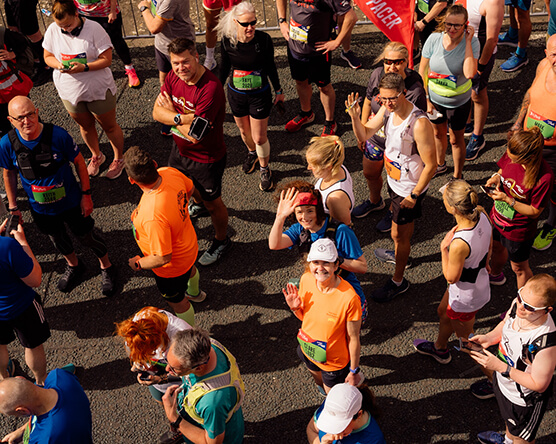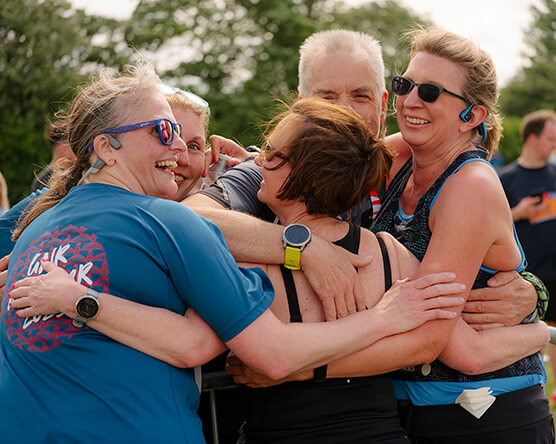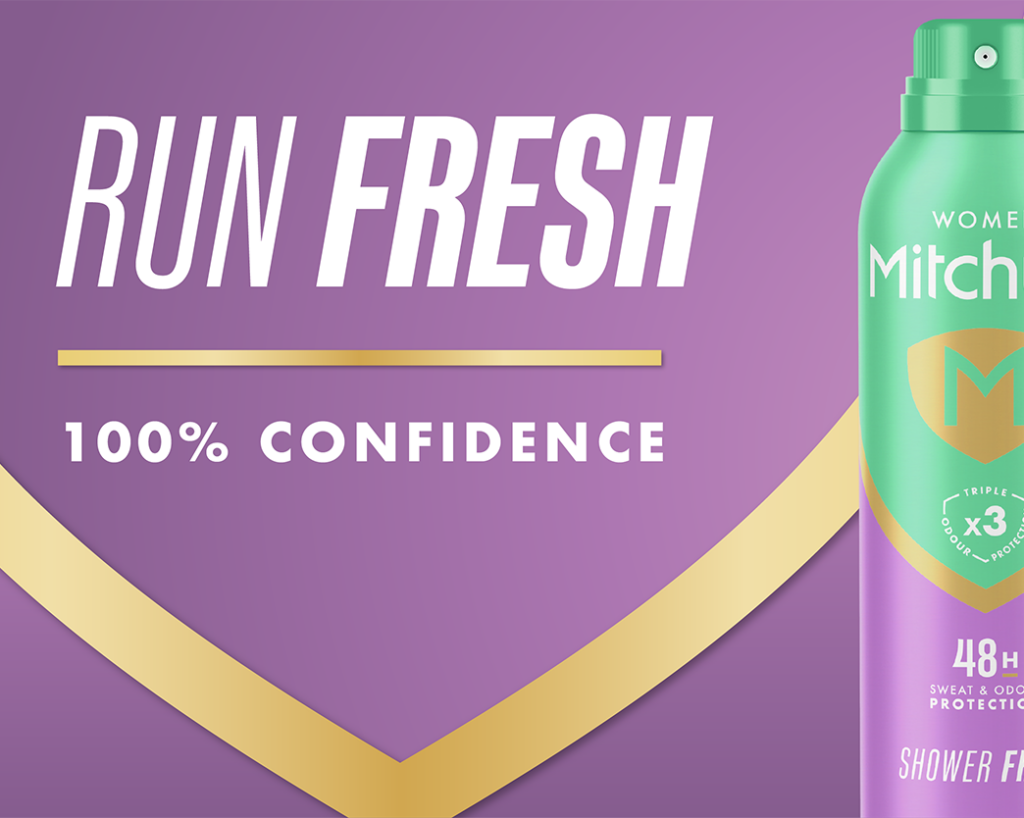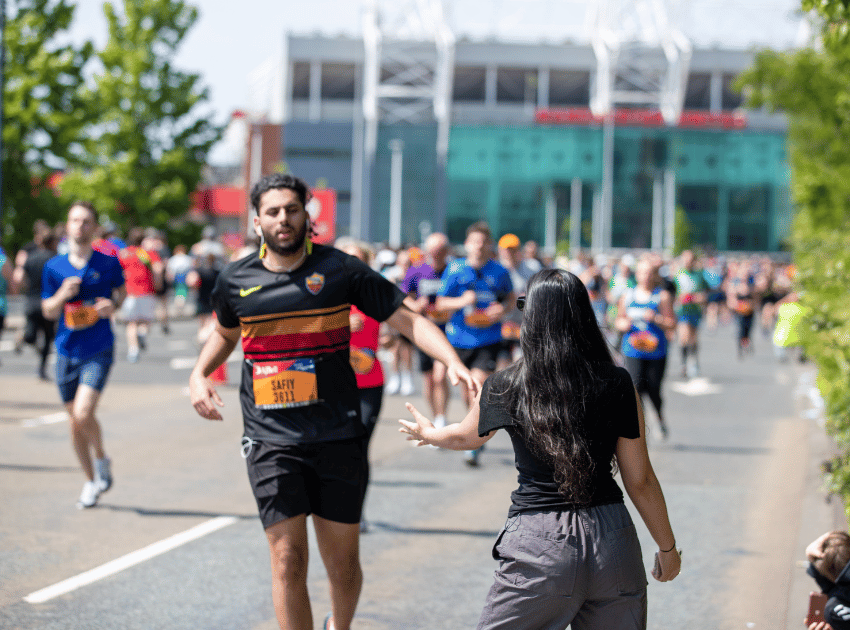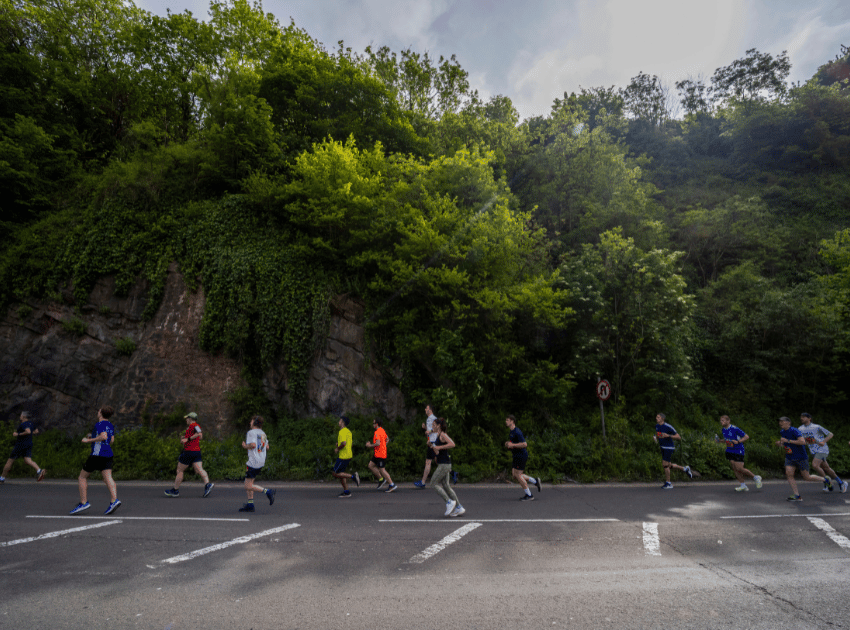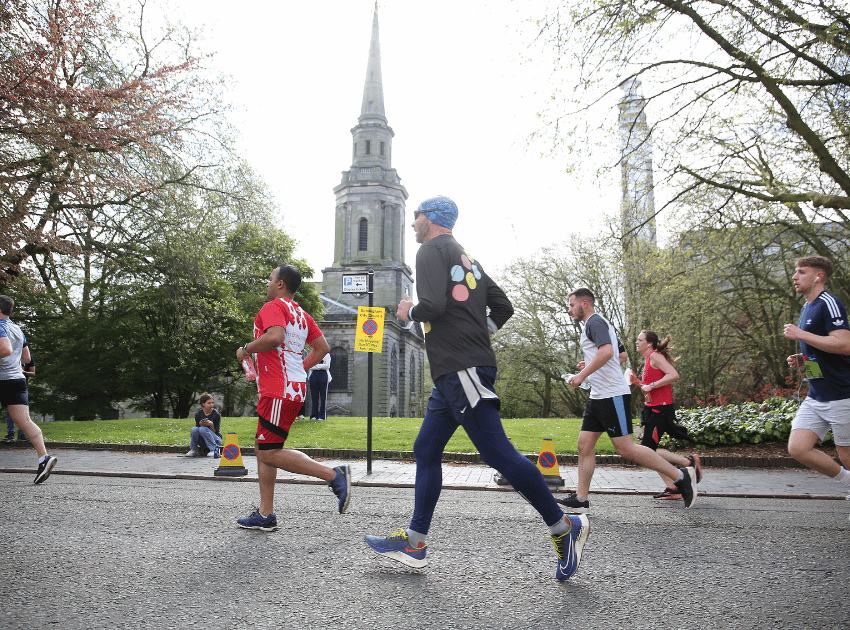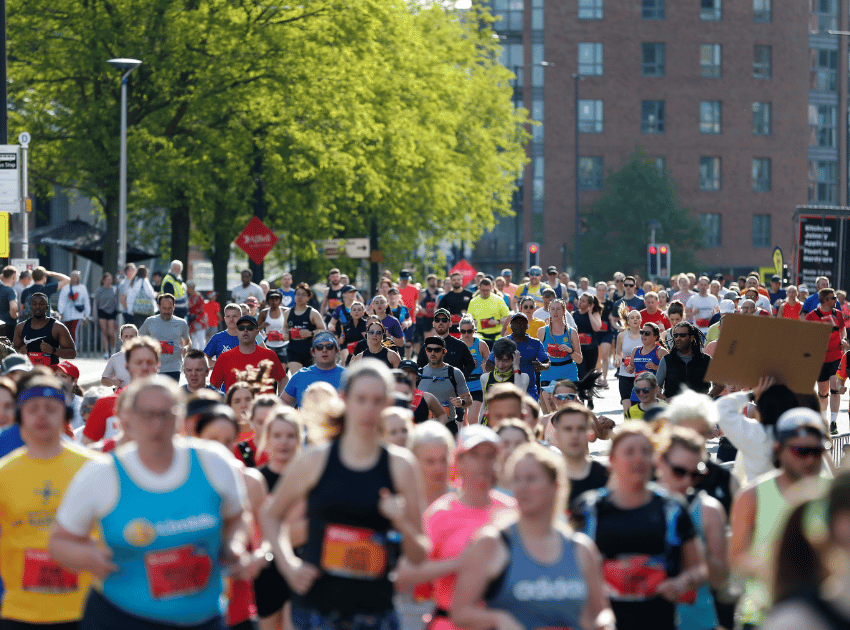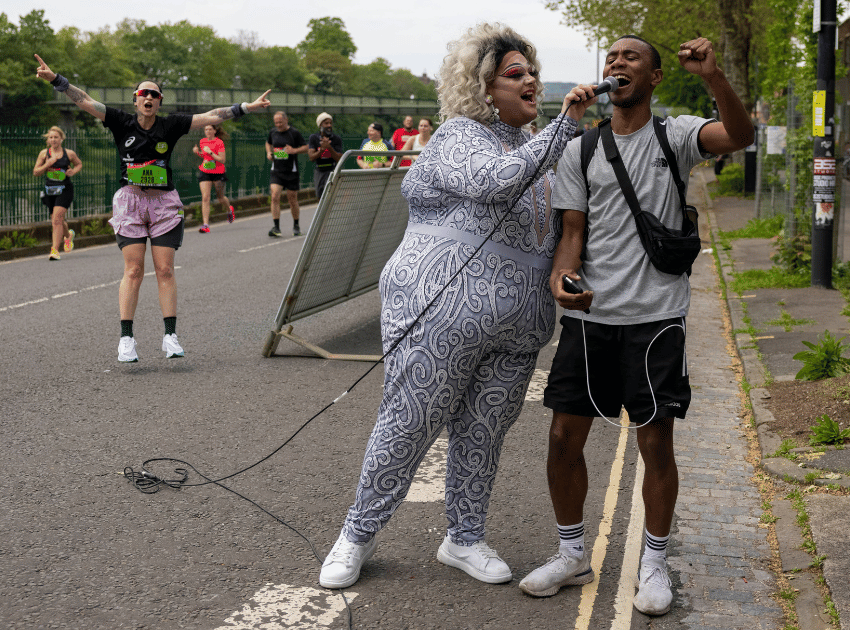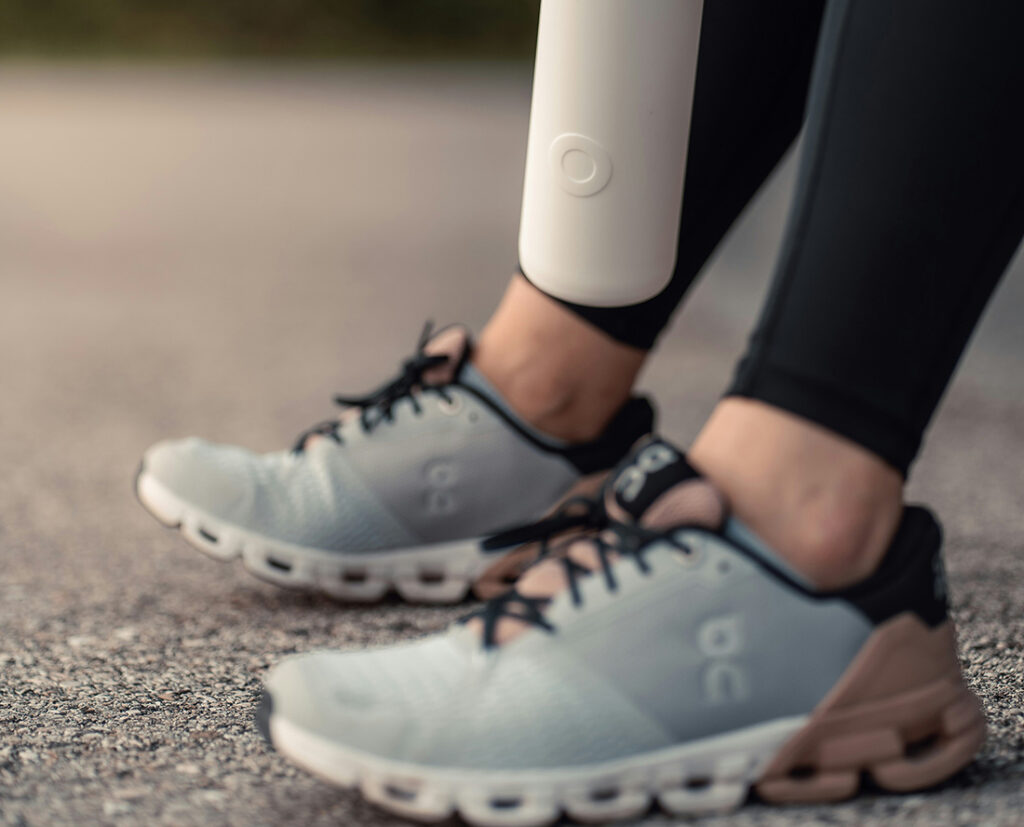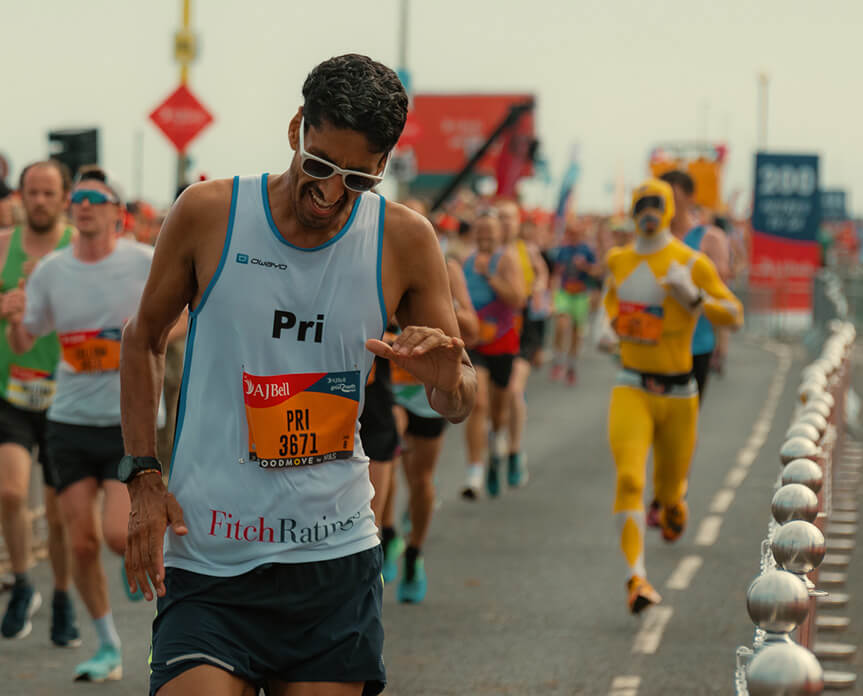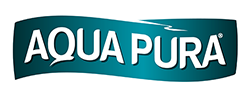Staying hydrated can help to ensure you put in your best performance on event day and make the most of all the hard work you’ve put in during training too. ‘How much water should I drink?’ is a question runners frequently ask.
Stephanie Davis, GB Olympic Marathon Runner, Run coach, and Aqua Pura spokesperson is here to answer some common questions and share tips about staying hydrated before, during, and after your Great Run.
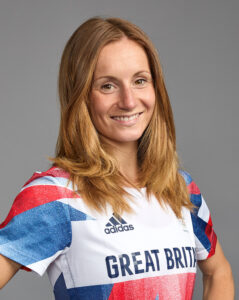
How much should I drink?
The amount of water you should drink will depend on your body size, the weather, your sweat rate, and how much physical activity you are doing. When we exercise, we sweat to remove heat from the body, but this also causes us to lose body fluid. Dehydration occurs when you use or lose more fluid than you take in, and your body doesn’t have enough water and other fluids to carry out its normal functions. It’s important to hydrate during the day and not just immediately prior to exercise. For events that are longer than 1.5 hours, you should start your hydration process the day before. Carrying around a water bottle with you can be a helpful constant reminder to drink. This will ensure you’re hydrated in the run-up to your training session and drinking little and often is better than just downing a pint of water every few hours! By making sure you’re properly hydrated you’ll enjoy your training more, you’ll perform better, and you’ll recover faster.
Click here for the Aqua Pura Hydration calculator. Follow the 3 simple steps and our clever calculator will crunch the numbers and tell you how much water your body needs to feel great.
What are the effects of not hydrating enough?
The physical signs of dehydration include less frequent urination, urine that is dark in colour, headaches, dry mouth, dizziness, and an increase in heart rate and body temperature. When these symptoms start to kick in, our rate of perceived exertion during physical activity will also increase. In other words, exercise will feel a lot harder! We want to avoid these symptoms by keeping on top of our water intake.
What do I need to consider when training in warmer weather?
The warmer weather will increase your sweat rate – so you will be losing more bodily fluids. This means you’ll need to drink more before, during, and after your activity. It’s also helpful to add electrolytes to your water when training and racing in the heat, as you lose them at a quicker rate in the heat.
During training should I run with water?
It depends on the length of time that you’re running, the temperature you’re running in and your sweat rate. If I’m running for less than an hour in relatively cool temperatures, then then I find I’m ok hydrating before I set out and then hydrating after. On anything longer than an hour I will always make sure I have a drink stop or carry water with me. If it’s hot, then I would take fluid with me for anything over half an hour. If you have a high sweat rate, then you might want to take water with you when running for shorter times.
What should my race strategy be and how do I change this if it is a hot day?
If you know the weather is going to be hot, then be prepared in advance and ensure you are well-hydrated going into the race. Having an electrolyte tablet in your water the day before will help too. You should make sure that you pick up water at every aid station and use this to drink and cool yourself down. On a cooler day, you can take water from an aid station as and when you feel you need to, but it is best to have a plan to take on some water at regular intervals.
How much water should I drink on the morning of a race and how do I avoid needing the toilet during a race?
It does depend a bit on the temperature. When racing in hot temperatures then you’ll definitely need more, but in the UK, I would sip on 750ml of water with an electrolyte tablet in the 2 hours before a race. To avoid needing the toilet in the race my top tip is to hydrate early enough so that you can go to the toilet before the race starts. I would avoid panic drinking immediately before the race as you are more likely to need to stop! But if you gotta go, you gotta go – so don’t panic if you need to, there will be plenty of portaloos on the course!
At the water stations, how much water should I drink and how should it be drunk?
I always plan to pick up a drink at every water station but how much I drink will depend on how I am feeling. Sometimes I will only take a few sips before discarding my bottle, but most of the time I will aim to carry my bottle for the next km and take regular and small sips before getting to the next bin. Little and often works well so you don’t have lots of fluid sloshing around your stomach.
What drinks count towards hydration?
There are lots of hydration options including milk, tea, diluted juice, and sports drinks, but you can’t beat water with an electrolyte tablet added if you’ve been sweating. Definitely steer clear of alcoholic drinks if you’re trying to hydrate!
What will happen if I do not hydrate properly and what are the signs to look out for to avoid this?
Dehydration can cause a whole host of issues. You might start by just feeling more tired, perhaps with a headache, then you might start feeling faint. Your body is generally quite good at guiding you – you should feel thirsty before you get really dehydrated, so as a rule, if you feel thirsty, make sure you drink!
Is there any risk in drinking too much?
Yes. The main risk is low sodium which occurs if you are drinking a considerable amount of plain water without electrolytes. Having too little sodium in your body can make you very sick. This is why when running in particularly hot weather its important you hydrate with electrolytes and not just water (particularly if you are a very salty sweater). This is called hypernatremia and we want to avoid this at all costs!
How do I hydrate post-race and how important is hydration to recovery?
Hydration is super important for recovery. You’ll feel so much better and be much less likely to get cramps, headaches, and stomach issues post-race if you hydrate properly during and after. If your urine is a light colour, then you have drunk the right amount, but if it is dark in colour then drinking plenty of water is a top priority! It is also important to have some food to replace your energy levels.
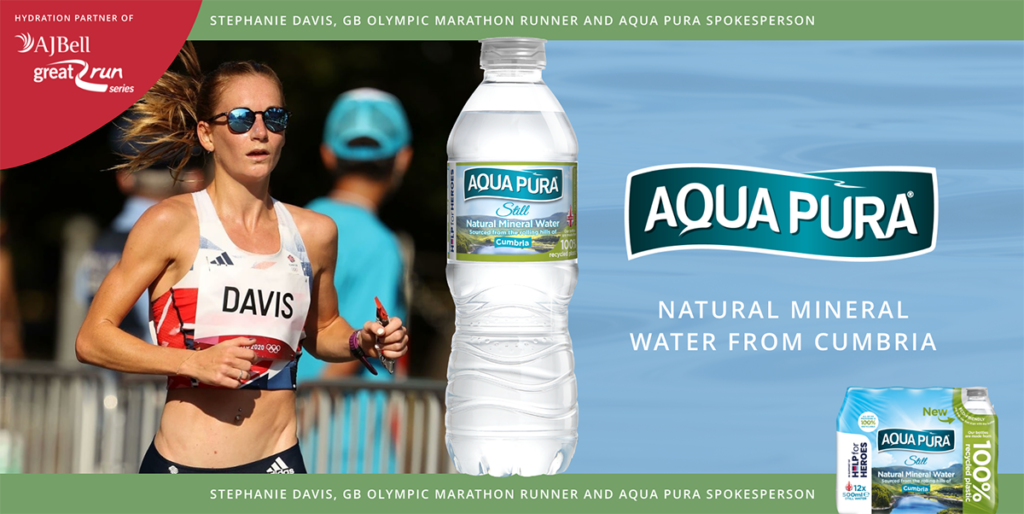
Aqua Pura, Natural Mineral Water from the rolling hills of Cumbria will be providing the water for the drink stations across the Great Run Series* (except the Scottish Great Run). The 300ml bottles are made from 100% plastic and have a special snap cap making them easy to open and close.
To find a Great Run event near you, click here.


